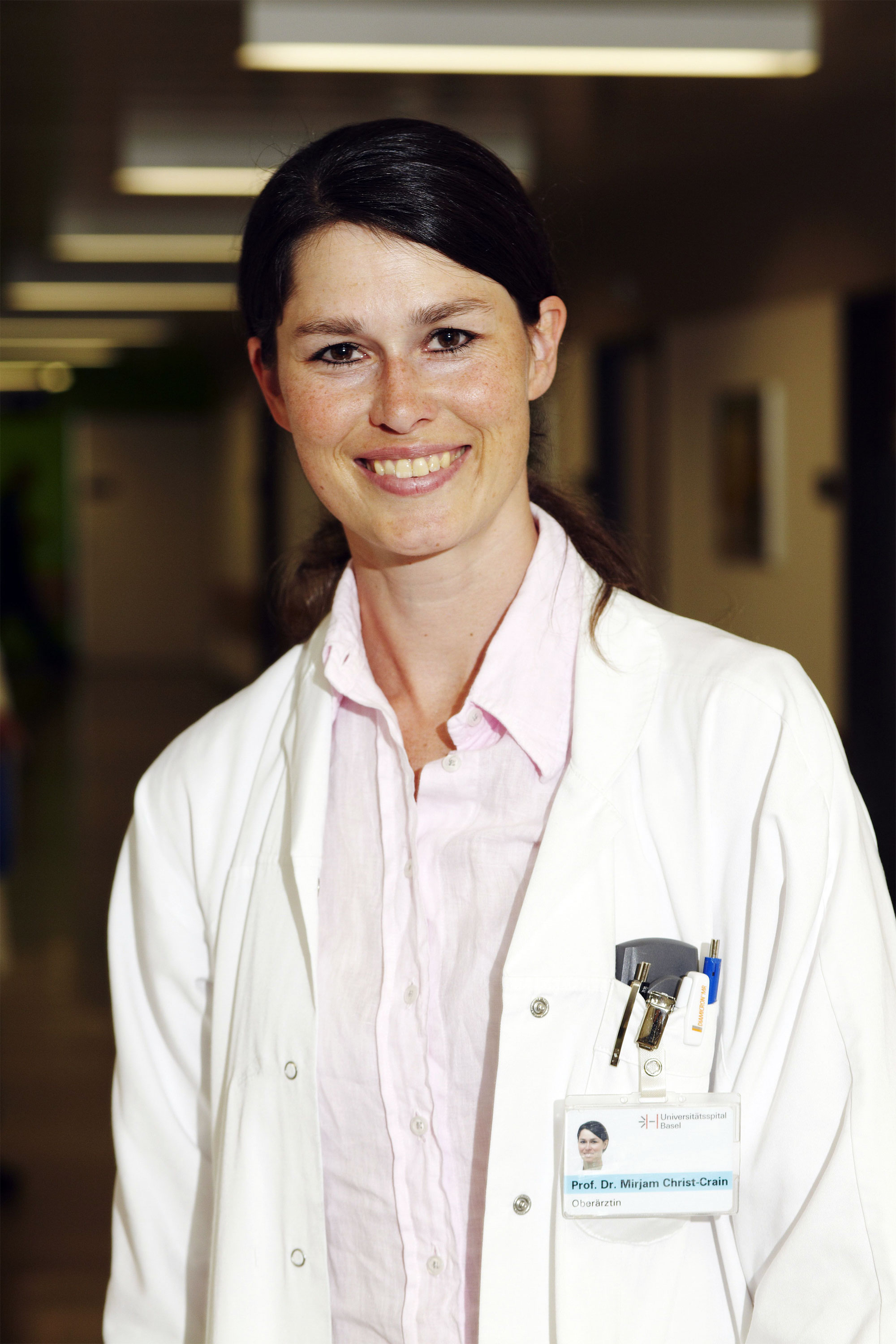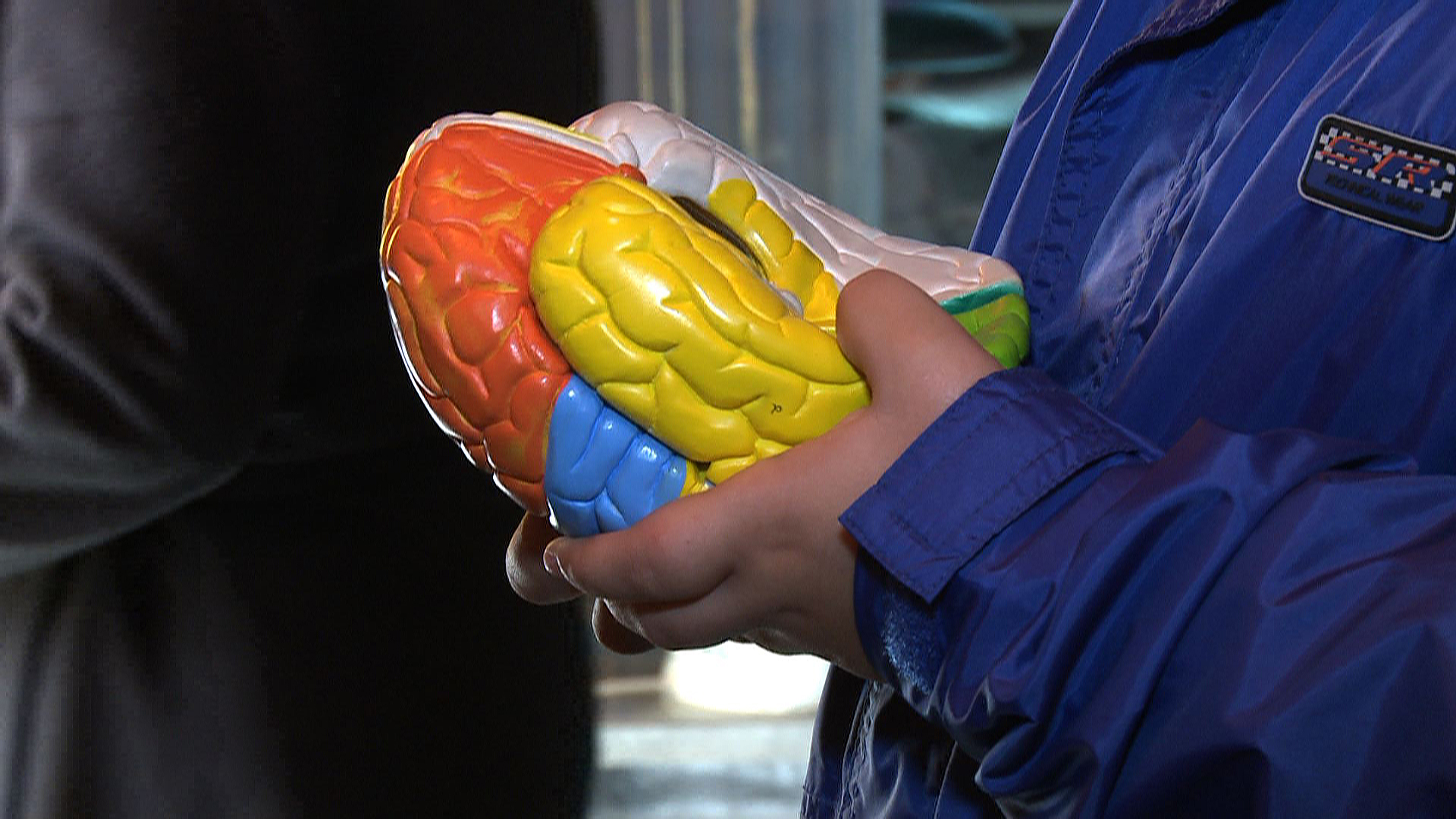Revealing nature’s secrets in the test tube

The key to curing many neurodegenerative diseases may be found through observing nature, believes organic chemist and Latsis prize winner Karl Gademann.
The 40-year-old received the prestigious national award for his work on the isolation and synthesis of natural materials. swissinfo.ch went to meet the atypical researcher.
The wall of Gademann’s office, in the centre of Basel, is surprisingly empty – no sign of the young Basel University professor’s numerous awards and diplomas. He prefers not to display them. “They’re in here,” he says, pointing to a cupboard near the door. Inside his awards are all neatly framed in glass and set out on two shelves.
The Latsis prize 2011, which he received on January 12 this year, is the largest.
“At secondary school I couldn’t decide whether to study German literature or chemistry,” he recalls. “One of my professors told me that I could deepen my knowledge of literature on my own, by reading in the evenings and in my spare time. That’s how I came to choose chemistry.”
swissinfo.ch: You are often outdoors, in the middle of nature. Is this unusual for a laboratory man?
Karl Gademann: Chemistry is a natural science. To be able to study it, you have to go outside and observe nature. I am particularly interested in toxic substances produced by plants, animals and microorganisms.
swissinfo.ch: What is the focus of your research?
K.G.: We are interested in the chemical structure of bioactive molecules and are studying in particular the way in which structure determines biological activity.
At present we are working on the toxicity of certain cyanobacteria [photosynthesising bacteria also known as blue-green algae] and are assessing the effects they can have on humans and animals. We have therefore managed to isolate, for the first time, a new group of toxins. This is very important because it could, in principle, help prevent poisonings from occurring – for example, in Africa where cyanobacteria in lakes are a huge risk for many people.
Our research also focuses on natural substances that can stimulate the growth of neuronal branching.
swissinfo.ch: What are the possible applications of this research?
K.G.: The chemical compounds that stimulate neuronal growth could be useful in curing neurodegenerative pathologies, such as Alzheimer’s disease. We have already studied and synthesised a promising molecule which belongs to the withanolide family.
There are many molecules of this type in nature. But not all of them might necessarily have a positive effect. One can’t exclude negative long-term effects.
Let’s take ashwagandha [Indian ginseng] for example, a plant which, according to traditional Indian medicine, improves cognitive ability. Its withanolides are found in many dietary supplements, but we don’t know how they work exactly. This is a very important point because these chemical compounds are taken by thousands of people every day.
In our other projects we have discovered some molecules which have been very effective in combatting malaria.
swissinfo.ch: The stimulating of neuronal growth could be seen as a sort of “brain doping”. Is it not risky to interfere artificially in physiological processes?
K.G.: Indeed, we often ask ourselves about the consequences of improving cognitive ability. Some researchers would not consider it all as “doping”. They compare these bioactive molecules with glasses: they improve our ability to see, so why should we do without them?
However, we prefer to be on the cautious side, and there’s no choice because, as we’ve seen with the development of contraceptives, chemistry can change society. That’s why I always tell my students to be careful, stressing how their work could have big consequences.
swissinfo.ch: The Swiss National Science Foundation, which awards the Latsis Prize, has called you “a world citizen of science”. What does this mean?
K.G.: I am an organic chemist and my work is the synthesising of molecules. But I don’t limit myself to my little world, I try to move into other areas as well to find out more about the properties of chemical compounds. We often collaborate with biologists, physicists and doctors as they have knowledge that we don’t.
In the domain of research into the human brain and memory function you have to collaborate with researchers from other fields. If you want to go to the moon, you can’t travel alone.
swissinfo.ch: For a young researcher, what is the importance of a prestigious prize like the Latsis?
K.G.: It shows that other scientists have recognised my work and results. On a personal level, it’s also a recognition of my students and all those who have worked with me. The prize is proof that if you work hard and with enthusiasm, your efforts will be recognised.
swissinfo.ch: The prize is worth SFr100,000 ($107,000). What will you do with this money?
K.G.: It is indeed a considerable sum. I’d like to finance a doctoral thesis which would carry out more risky research, for which it would otherwise be difficult to get funding.
swissinfo.ch: Risky?
K.G.: I mean research into unknown areas, which can sometimes lead to exceptional discoveries. It’s a bit like following in Christopher Columbus’ footsteps, as nobody wanted to finance his efforts to find new ways to reach India. Everyone said it wasn’t possible…
Born in Zurich on June 27, 1972. After his doctorate at the Federal Institute of Technology Zurich (ETHZ), he first worked at the firm Givaudan and later at Harvard University (2000-2001).
After returning to the ETHZ, he completed his habilitation (qualification with professorship thesis) there in 2006. This led to an assistant professorship at the Federal Institute of Technology Lausanne (EPFL) at the age of 34 where he founded the chemical synthesis laboratory.
In 2010 he was appointed associate professor of organic chemistry at Basel University and has had a full professorship there since 2012.
Other notable awards include the European Young Investigator Award (2007) and the Ruziska Prize (2009).
The Latsis Foundation was established by the Greek family Latsis in Geneva in 1975. The family made its fortune at the beginning of the 20th century in property, oil, finance and the dried fruit trade.
Worth SFr100,000, the National Latsis Prize is one of the most prestigious scientific awards in Switzerland. The Swiss National Science Foundation presents the prize on behalf of the Latsis Foundation to researchers of up to 40 years of age in recognition of their special contribution to science in Switzerland.
The award ceremony was in the Swiss capital, Bern, on January 12, 2012.
In addition, there are four university prizes worth SFr25,000 each (University of Geneva and St. Gallen, ETHZ and EPFL).
(Translated from Italian by Isobel Leybold-Johnson)

In compliance with the JTI standards
More: SWI swissinfo.ch certified by the Journalism Trust Initiative





You can find an overview of ongoing debates with our journalists here . Please join us!
If you want to start a conversation about a topic raised in this article or want to report factual errors, email us at english@swissinfo.ch.